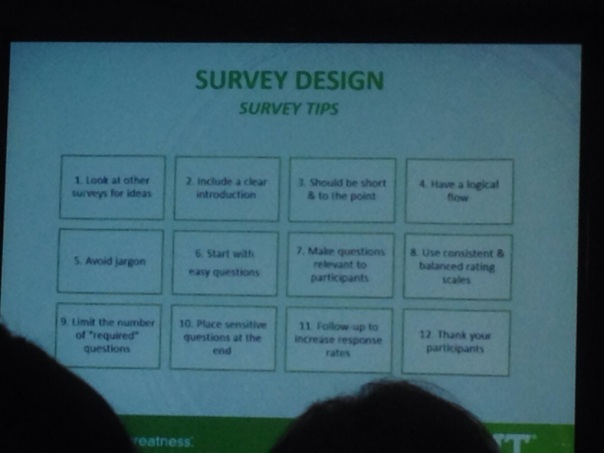Dr. Aaron Carroll, author for The Incidental Economist blog, spoke about the Affordable Care Act. Here are highlights from the session:
- The Iron Triangle – cost:quality:access
- can only improve 1-2 aspects of the triangle at one time without compromising the other aspects
- US has been stagnant with covering health care
- PPACA
- 3-legged stool (not that type of stool, sicko)
- regulations: everyone should be able to get insurance even if they have a pre-existing condition
- individual mandate: everyone needs to buy insurance, even if they are healthy
- subsidies: provide tax credits to make the insurance affordable
- access isn’t just about insurance — percent of people waiting 6 days or more to see doctor: US=2/3 during nights, weekends, holidays
- “richer half of Americans are more likely to avoid care because of cost than the poor half in other industrialized countries”
- we suck at access
- healthcare is going to ruin us in the future
- this is not a public-payer problem – rate of healthcare premium growth far exceeds the comparatively flat rate in employee salaries
- regulations and limited spaces in medical education are contributing to these
- Note to self: play with OECD data
- JAMA August 14, 2013 – Years of Life Lost (Table 4 – Rank of Age-Standardized YLL Rates Relative to the 34 OECD Countries in 2010) <– great visual resource to demonstrate exactly how we fail in quality categories
- States oppose Medicaid expansion for 2 reasons
- hidden costs
- woodwork problem – those previously eligible for Medicaid but sign up now fall into the old rates paid by the states, not the new federal expansion
- about 1 in 3 births are covered by Medicaid and 1/3 of children in US
- average individual policy costs $6k; 2012-2013 poverty line is about $11k – they simply can’t afford it
- Medicaid is
- those not expanding Medicaid forego $35bn
- providers will still care for uninsured but get even less money
- all reform tries to spend less money
- health care spending is growing more slowly than almost every before
- reform is great for the company and terrible for health care industries
- less money is going in = big changes for us
- medical device tax estimated to raise $30bn over a decade (2.3%) –> biggest change is that they CANNOT pass this cost on to consumers –> have to make the case for rolling out this expense on tech
- for insurance companies, prediction models will be critical
- networks will become more important
- #1 thing causing physician dissatisfaction: EHRs
- How Librarians Relate aka Our Clear Takeaways
- adhering to guidelines is going to be key – searching & understanding the lit
- accountable care demands more info transfer
- there is no way for a physician to remain current without help
https://twitter.com/carolynthelib/status/468072732484444161
https://twitter.com/TonyNguyen411/status/468072109004972032
Other Tweets of Interest or Entertainment from the Talk
https://twitter.com/carolynthelib/status/468064737620918272
https://twitter.com/jolene278/status/468064315086368768
https://twitter.com/Research4SML/status/468062209533562880
https://twitter.com/lisafederer/status/468066703122120704


